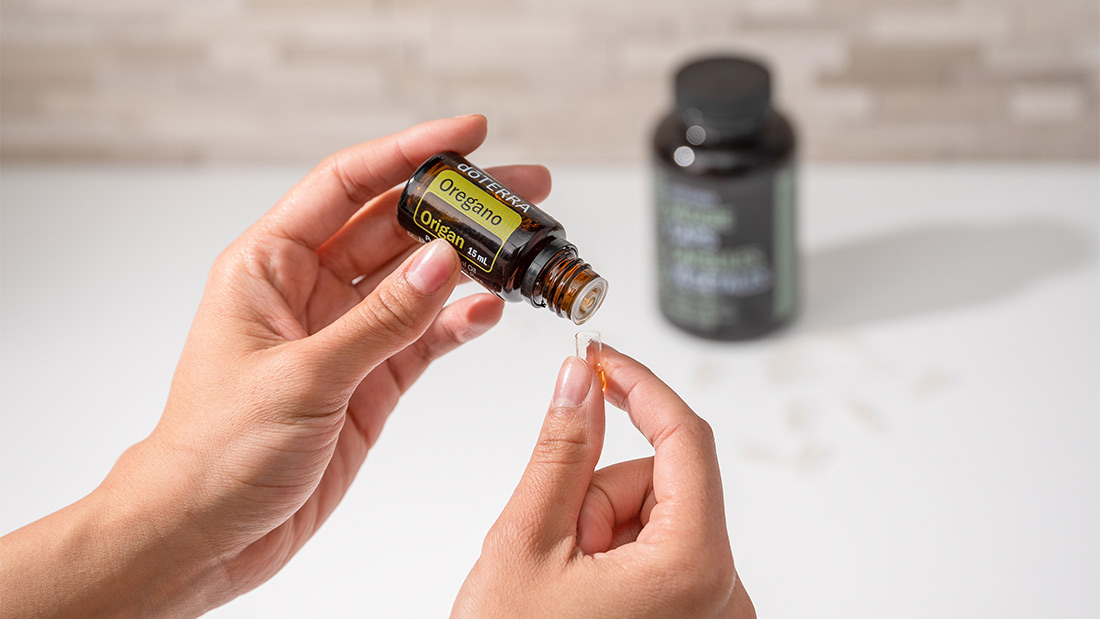Origin: a Latin derivative
meaning "Gift of the Earth."
Using Hot Essential Oils

If you’ve ever heard someone use the term “hot essential oils” and wondered what in the world they were talking about, you’re in luck. What are hot essential oils? They are essential oils that require dilution because they give a hot, sometimes burning sensation to the skin and a spicy, burning sensation if taken internally. These are some amazing essential oils with vast benefits, but they do require a little preparation and safety before use. Hot essential oils include:
Keep in mind, this is not an exhaustive list of hot essential oils, especially if you are using essential oil blends or brands other than doTERRA.
Hot essential oils must be diluted in a 10:1 ratio with Fractionated Coconut Oil or another carrier oil when applied topically. Always keep these essential oils out of the reach of children, and consult your physician if you are pregnant or under a doctor’s care before use. Be especially cautious about where you apply these essential oils, and avoid contact with the eyes, inner ears, face, and other sensitive areas.
What Are Warm Oils?
We also categorize other essential oils as “sensitive,” but you may have heard them referred to as warm essential oils. We also suggest diluting warm essential oils, but it is not necessary like it is for hot essential oils. Warm essential oils include Black Pepper oil, Lemongrass oil, Wintergreen oil, Peppermint oil, and others. Children, the elderly, or those with sensitive skin should absolutely dilute these essential oils before use.
Do and Do Not
There is no need to fear using hot essential oils. We use strong, direct language to describe safety guidelines surrounding these essential oils because we care for you and your family, but they are still wonderful and beneficial assets to your routine! The more prepared and knowledgeable you are, the more confident you can be as you incorporate the benefits of these hot essential oils into your daily routine. Here is how to exercise an extra dose of caution while you use your hot essential oils:
- DO safely apply hot oils topically by diluting them. For dilute or hot oils, we recommend that adults dilute one drop of oil to 10 drops of carrier oil. For sensitive or warm oils, we recommend diluting one drop of oil in five drops of carrier oil. For children, additional dilution is needed. Be sure to always patch-test a small spot of skin before applying essential oil, even when diluted, over a large area. Neat category essential oils can be applied without dilution if you are familiar with the essential oil, but dilution is never a bad thing. It doesn’t hinder the efficacy of the essential oil and may help you avoid unexpected skin irritation.
- DO NOT add hot oils to bathwater. We don’t know many people that don’t love an aromatic bath. Baths are one of our favourite ways to use essential oils aromatically and topically, but the best essential oils to use in the bath are “neat” oils that do not require any dilution. Exercise caution when using warm essential oils in bathwater. Before adding any essential oils to a bath, mix them with Epsom salts or soap first to make sure the essential oil doesn’t simply float on top of the water.
- DO NOT place hot oils directly on the tongue or directly in the mouth. These essential oils are too strong to be taken directly without dilution. Diluting essential oils when taking them internally just means adding them to a veggie capsule or incorporating them into foods such as marinades, soups, or beverages.
- DO diffuse hot oils without worry. Aromatic use is a simple, safe way to use hot essential oils. You can diffuse hot essential oils with any diffuser—just follow the instructions for the diffuser you choose!
Determining Essential Oil Sensitivity Level
To determine if you are sensitive to a particular essential oil, perform a patch test. Combine one drop of a hot essential oil with ten drops of carrier oil (or five drops of carrier oil for warm oils) and apply to a patch of skin on your forearm. Observe that area of skin for one hour for any noticeable reaction, but you’re most likely to have a reaction within 10 minutes.
You will know if you are sensitive to a particular oil based on responses in the skin, digestive system, respiratory system, or other areas of the body. Some of the signs of essential oil sensitivity include pain, swelling, or tenderness in the skin, skin irritation, difficulty breathing, or upset stomach.
What to Do If You Have a Reaction
If you experience a sensitivity reaction to essential oils in the digestive system, immediately discontinue the use of that essential oil. If a large amount of essential oil was consumed, contact poison control. Otherwise, you can help reduce feelings of sensitivity by drinking plenty of fluids. If a skin reaction occurs, apply Fractionated Coconut Oil to the area every few minutes until the reaction is neutralized.
The Takeaway
Essential oils are potent, and some have stronger reactions than others. Be prepared with the tools and knowledge that will help you and your family use neat, sensitive, and dilute essential oils safely! Their benefits are worth all the necessary precautions.



